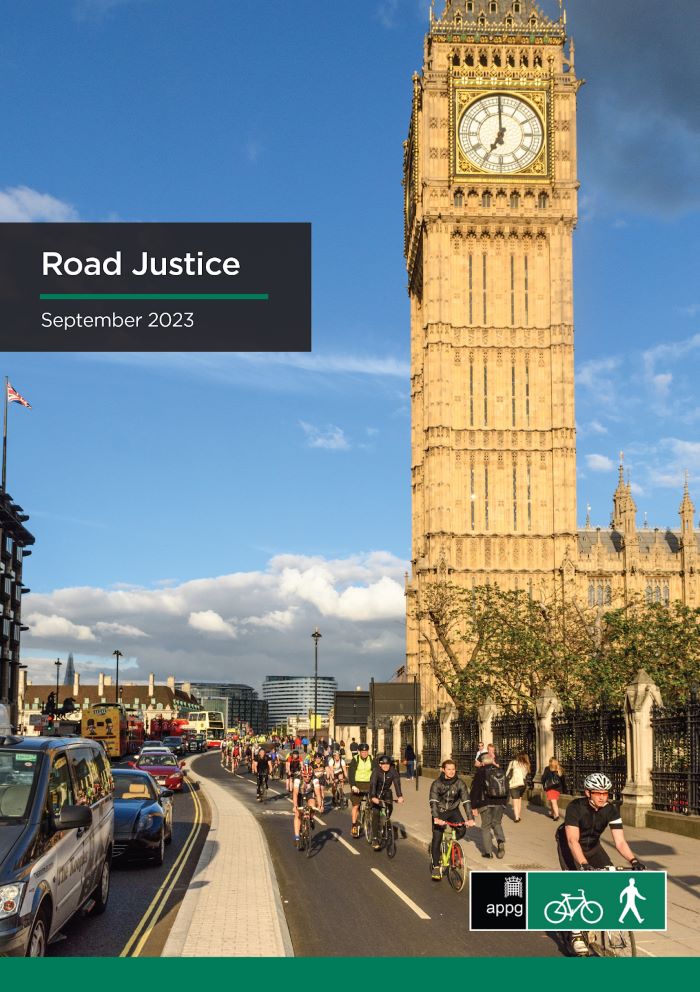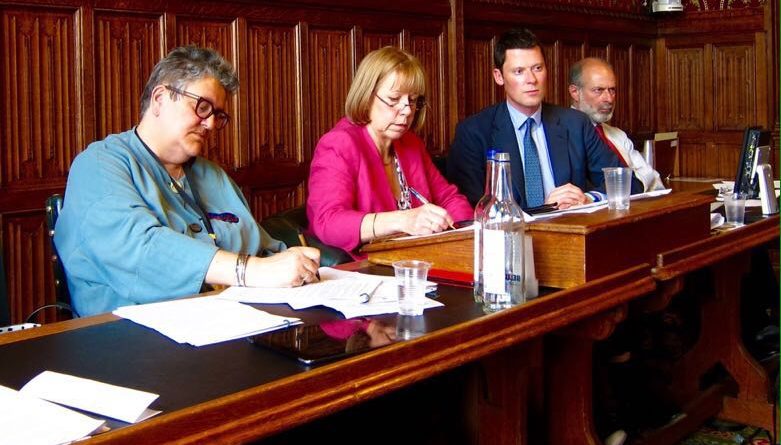Parliamentary report addresses the issue of road justice
The All-Party Parliamentary Group for Cycling and Walking (APPGCW) has today launched a new report addressing the issue of road justice. In 2017 the All-Party Parliamentary Cycling Group conducted a significant inquiry looking at cycling and the justice system. With active travel more important than ever on the policy agenda, they felt it prudent to revisit that inquiry and provide this updated report, which is supported by British Cycling and Leigh Day.
 It includes ten key recommendations and a summary of progress on those from the previous inquiry, and will form the basis of their campaigning on this important issue in Parliament. It is all too common to hear of an appalling case of road violence in which one or more people have either lost their lives or suffered life changing injuries – only for the perpetrator to receive a shockingly low sentence and / or driving licence penalty. It is this imbalance between the action and the consequences that requires correcting in order to see true road justice.
It includes ten key recommendations and a summary of progress on those from the previous inquiry, and will form the basis of their campaigning on this important issue in Parliament. It is all too common to hear of an appalling case of road violence in which one or more people have either lost their lives or suffered life changing injuries – only for the perpetrator to receive a shockingly low sentence and / or driving licence penalty. It is this imbalance between the action and the consequences that requires correcting in order to see true road justice.
One of the key recommendations within the report is that exceptional hardship should be overhauled to be truly reflective of circumstances. Astonishingly, almost a quarter of those who amass 12 penalty points successfully argue against disqualification on grounds of exceptional hardship. This is despite revised guidance, and indicates a clear problem with either the current definition, or its application. The resulting consequence is that many drivers who could be serving a ban are still out on the roads, with increased risk to all other road users.
There is also a call for compulsory re-testing for anyone wishing to drive following any period of disqualification. Many offences are committed by people who are clearly not competent to drive. Whilst re-testing is an established intervention in traffic law (compulsory for those convicted of dangerous driving and graver offences), the latest sentencing guidelines do not include it for causing serious injury by careless or inconsiderate driving or attempting to drive with a specified drug above the specified limit.
Other recommendations within the report include; removal of tolerances in speed enforcement, escalating penalties for repeated offences and increased maximum sentence for dangerous driving and fuller use of Police bail powers. Following the publication of this report, the APPG will be meeting with Ministers, lobbying for a Parliamentary debate, and identifying opportunities to highlight this issue wherever possible.
 Ruth Cadbury MP, co-chair of the All-Party Parliamentary Party Group for Cycling and Walking (APPGCW) said:‘’I doubt that there is a single Member of Parliament who has not had a tragic incident of road violence in their constituency. Sadly, the nature of those incidents is all too often vastly different from the consequences for those who are responsible.
Ruth Cadbury MP, co-chair of the All-Party Parliamentary Party Group for Cycling and Walking (APPGCW) said:‘’I doubt that there is a single Member of Parliament who has not had a tragic incident of road violence in their constituency. Sadly, the nature of those incidents is all too often vastly different from the consequences for those who are responsible.
‘’This report is a key step in our work to redress that balance and ensure that there is true road justice. Doing so is essential if we are to unlock the walking, cycling and wheeling potential, and reap the associated benefits of that.
‘’We will be campaigning hard in Parliament for change on the recommendations within the report, and welcome support from those who share our commitment to this issue.’’
 Selaine Saxby MP, co-chair of the All-Party Parliamentary Party Group for Cycling and Walking (APPGCW) said: ‘’As a cross-party group of Parliamentarians, we work to promote all forms of cycling and walking. We have welcomed ambition from the Government to see half of all journeys in towns and cities walked or cycled by 2030 – yet there is much to be done to see that become reality.”
Selaine Saxby MP, co-chair of the All-Party Parliamentary Party Group for Cycling and Walking (APPGCW) said: ‘’As a cross-party group of Parliamentarians, we work to promote all forms of cycling and walking. We have welcomed ambition from the Government to see half of all journeys in towns and cities walked or cycled by 2030 – yet there is much to be done to see that become reality.”
‘’One of the key barriers to wider uptake is fear over the safety of our roads and the perception that dangerous driving has become all too common. This piece of work has been an important undertaking that has highlighted some of the appalling incidents of road violence.
‘’We hope it will mark a turning point, as we work towards delivering true road justice.’’
Wider, Active Travel, context
Legal protection for road users has seen recent THINK, Highway Code campaigns working to outline a responsibility hierarchy – an essential ingredient if British road use is to be transformed, so as to actively support a major transition to Active Travel.
Regrettably, March of 2023 saw UK government announce, “a devastating £200m cut to the active travel budget in England.” As Sustrans reported, “This sets us on the completely wrong path for society, the economy and the environment. And it sees the government backtrack on its previous pledges for active travel investment.” At the time MPs issued a statement, which can be read here.
6 months on from the government’s decision, CIN heard from Stephen Frost, Principal Research Fellow at IPPR who, in a guest feature. explored, “How much should we be spending on active travel in England?”



